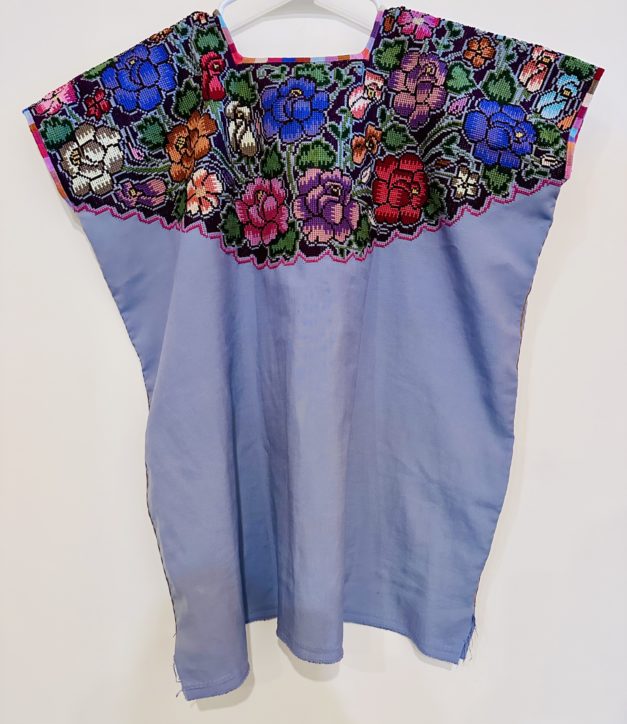So many visitors come to Teotitlan del Valle, brought by tour guides to go rug shopping, but never know the other treasures that the village has to offer. In and out of rug galleries on the main road, off they go to the next destination without ever coming into the center of town. I recommend you don’t make that mistake!
You really need a few hours here or more to explore this wonderful Zapotec pueblo.
Church Built Atop Ancient Zapotec Temple
Did you know there is an ancient pre-Hispanic archeological site behind the Iglesia de Preciosa Sangre de Cristo (Church of the Precious Blood) in Teotitlan del Valle? It’s not a high pyramid like those at Monte Alban or Mitla because the Spanish conquerors used the temple stones to build the church foundation and edifice. You need to walk around to the back side to see the remains and then go inside the church courtyard to see stone carvings recovered from the original structure that are embedded in the walls. Look closely and you will see the rain god Tlaloc and the plumed serpent Quetzalcoatl.
Community Museum: A Living History of Zapotec Life
The community museum, known as Balaa Xtee Guech Gulal or translated from Zapotec to mean In the Shadow of the Old People, is located across from the rug market. Next to it is the village government building called the Municipio or Palacio. The entire square was redesigned and rebuilt several years ago into a modern public gathering space and there is ample parking.
In the community museum you can purchase important documentary videos produced by Metamorfosis Documentation Project that explain the history and culture of the village through its very important of Dance of the Feather — Danza de la Pluma. All sales of the video benefit the ongoing non-profit projects of the museum to preserve and explain traditions. Museum exhibits include old photographs, dioramas, textiles and archeological findings.
Daily Market: Sustenance of Village Life
You can find market vendors as early as seven or seven-thirty in the morning setting up stalls. There really isn’t an official time for the market, but it’s going full blast by eight-thirty in the morning and begins to slow down two hours later. By eleven in the morning, only a few fruit sellers are left. It’s worth it to come into town the day before, spend the night at one of the lovely and basic posadas/hostals, and get up early to get to the market. I often sit at the periphery just to watch the ladies with their woven market baskets made from bamboo (called canastas) crooked through their elbows, as vendors weigh out the produce and deposit the purchase into the basket.
Here you can get fresh squeezed organic juices. My favorite is beet, carrot, pineapple and orange juice. Belly up to a comal for a breakfast quesadilla or pick out a savory tamale Teotiteco-style — bean, amarillo, chipil — from one of the women who sell out in the open air. Peel back the husk and use your fingers to eat, just like the locals. Then, of course, there are the handmade aprons, the uniform of local Zapotec women, sold near the bread vendors.
Smell the fragrant lilies. Take in the piles of roses. Pay attention to the grandmothers whose braids, interwoven with ribbon, hang down their backs. Catch a whiff of the copal incense coming from the church. Feel your feet on ancient cobblestones. Immerse yourself and take your time. The life here is rich and rewarding.
A Walk to the Presa: The Reservoir Awaits
Egrets, heron, grazing cattle and sheep, herders on horseback or walking with staff in hand are part of everyday life here. From the village market, walk along Avenida 2 de Abril toward the sacred mountain called Picacho. When you come to the T, which is Avenida Revolucion, make a right turn and continue along the wide dirt road until you come to the reservoir and dam. This is the water source for the village’s agricultural endeavors. It is also very scenic and a perfect place for an afternoon picnic. Did you remember to buy cheese and bread the market? If you do this, please don’t forget to pack out your refuse!
Gracias y adios!

















Pingback: 13 Reasons Oaxaca, Mexico, Should Be Zoomed To The Top Of Your Bucket List – Health Talk Blog